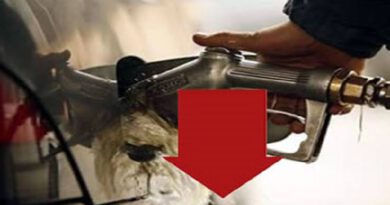KZN floods see SA container exports slump 17.5%
The PwC Economic Outlook for August reports that South Africa’s local container exports experienced a 17.5% year-on-year decline during the second quarter due to adverse effects caused by the KwaZulu-Natal floods.
It says added pressure from load shedding reduced activity at the Port of Durban where exports fell by a third during April and May compared to the prior comparative period.
“The country’s total container volumes fell by 100 000. Most recently, South Africa exported 182 421 containers in July, a decline of 3.1% month-on-month and 11.2% year-on-year,” it adds
The significant drop comes after container exports increased by 5.1% in the first quarter when global appetites for imports continued to improve.
Port inefficiencies
Apart from supply chain issues arising from the Russia/Ukraine conflict and lockdowns in China, the outlook says South Africa’s ports are beset with operational inefficiencies.
Read: Salvation in sight for key ports of Durban and Ngqura
“The recently released World Bank Container Port Performance Index (CPPI) 2021 ranked Durban, Cape Town and Ngqura in the bottom ten ports out of the 370 locations analysed globally.
“This is based on the average time spent by a ship in these locations which, in turn, is reflective of factors like the availability and quality of infrastructure, layout of the harbour, and the expertise of the employees, amongst others.”
Denise van Huyssteen, CEO of the Nelson Mandela Bay Business Chamber, says direct exports from the region have declined due to the reduced number of vessels calling upon its ports.
She notes that this has affected the ability of local exporters to serve international markets and further results in additional logistics expenses incurred through the transportation of goods to other ports by road.
“It is evident that international shipping lines have reduced calls here due to the inefficiencies of our ports, as well as a result of global supply chain constraints,” says Van Huyssteen.
Moreover, the report notes that offshore investment trends continue to pick up steam in South Africa, with the value of outward foreign direct investment (FDI) stock reaching R222 billion in the second quarter of 2022.
“This was the highest on record, based on data going back to 2006. While this large sum was certainly linked to a few mega deals, worth R114 billion, outward mergers and acquisitions excluding mega deals, valued at R107 billion, was also the highest in six years,” the report notes.
Jalopy economy
Against this backdrop, it says, is South Africa’s struggling economy with growth slowing down once again to a long-term potential of 1.5% while the global trend is forecast at 2.6%.
“If economic growth was a car, South Africa [would] be driving at 60km/h while the global average is above 100km/h.”
Financial economist and senior lecturer at the University of Cape Town Dr Thanti Mthanti says although South Africa’s economic situation is not new, the country’s persistently poor GDP per capita and volatile rand continue to encourage local companies to look for opportunities in countries with thriving economies.
“The major problem is that we are not attracting other companies overseas to invest in offshore stock here in South Africa,” says Mthanti.
“What makes matters more complicated is that South Africa’s economy is heavily reliant on commodity prices and its internal debt which means our economic growth is tied to external debt.
“We have chosen the route of industrialisation but at the same time we have extreme exchange rates and thus our yields have become highly unpredictable.”
Multiple factors
According to Wayne McCurrie, Ashburton Investments economist and portfolio manager, there are several factors that hinder South Africa in its efforts to create long-term growth and jobs – including that the country does not effectively work together.
“It cannot be that we are proud of national shutdowns that threaten to bring the country’s economy to its knees,” he says.
However: “The biggest deficit is that we lack confidence in our ability to have consistent electricity supply, water, and efficient public service systems. The amount of time it takes for government to approve licences, for instance, deters many companies and there are more opportunities to invest abroad with less lead time.”
Read: TNPA head office’s move to Port of Ngqura questioned
McCurrie says South Africa needs to ensure that it can provide efficient, consistent electricity, effective law enforcement and coherent legislation because businesses cannot afford to invest in a country that is unpredictable.
“We need another Codesa [Convention for a Democratic South Africa, the negotiating forum set up in 1991], where we all get together and acknowledge the faults of the past, remove the blame game so that we can move forward together as a country and build our economy from there.”
Nondumiso Lehutso is a Moneyweb intern.
Source: moneyweb.co.za

